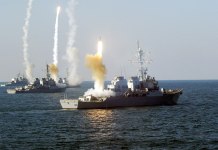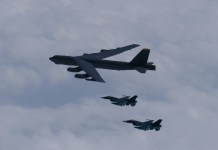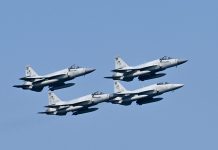US President Donald Trump has cautioned that a “complete decoupling” from China remains a policy option for the United States after suggesting that China may have deliberately spread coronavirus to economically cripple the United States.
India-China War: China Has No ‘Military Advantage’ Over ‘Battle-Hardened’ Indian Army – CNN
Donald Trump’s onslaughts against China came even as top US lawmakers, officials, and policy experts are reasoning that an aggressive China feels fearless to make territorial grabs in the region, including incursions into India, to divert from its role in spreading the coronavirus.
“The US. certainly does maintain a policy option, under various conditions, of a complete decoupling from China,” Donald Trump tweeted after telling the Wall Street Journal “There’s a chance it (coronavirus) was intentional,” driven by economic motivation.
10 Indian Soldiers Released By China; ‘No Indian Troops’ Under Chinese Custody Now
“They’re saying, man, we’re a mess. The United States is killing us. Don’t forget, my economy during the last year and a half was blowing them away,” Trump told The WSJ adding that he didn’t have concrete data to back up the claim, and there was a better chance it was Chinese incompetence or a mistake “but you never know… it has had an impact.”
Chinese assertiveness came in for additional analysis in Congress where Senate Majority Leader and Mitch McConnell flatly accused China of instigating the violent border clashes.
“The world could not have received a clearer reminder that the PRC is dead-set on brutalizing people within their own borders, challenging and remaking the international order anew in their image — to include literally redrawing world maps,” McConnell said during a foreign policy debate, outlining China’s aggression in the region against India, Japan, and Taiwan among others.
Australian Media Says India Has The ‘Most Powerful Weapon’ Ready Against China
The State Department too read from the same page with a key official detailing China’s repeated incursions into India. “This activity is similar to the activity we’ve seen in the past on border disputes … I think it was 2015 when Xi Jinping travelled to India the first time.
The Chinese attacked this disputed territory deeper and longer, with more people than ever before. Then we saw the Doklam issue down near Bhutan, where we saw similar aggression. Again, whether that was a negotiating tactic or a – just a punch in the nose to demonstrate their superiority, I don’t know,” David Stilwell, the State Department official heading the East Asian and Pacific Affairs bureau said in a briefing on Secretary of State Mike Pompeo’s meeting with Chinese mandarin Yang Jiechi on Wednesday.
Chinese Military Base In The Pacific Near Australia Could Be A Nightmare For The US & Allies
The meeting was a failure, with Stilwell referring to the trust deficit between the two sides in view of China’s inability or unwillingness to adhere to commitments and a “wolf warrior environment – very shrill, one-sided, sometimes not realistic” – that Beijing operated in.




